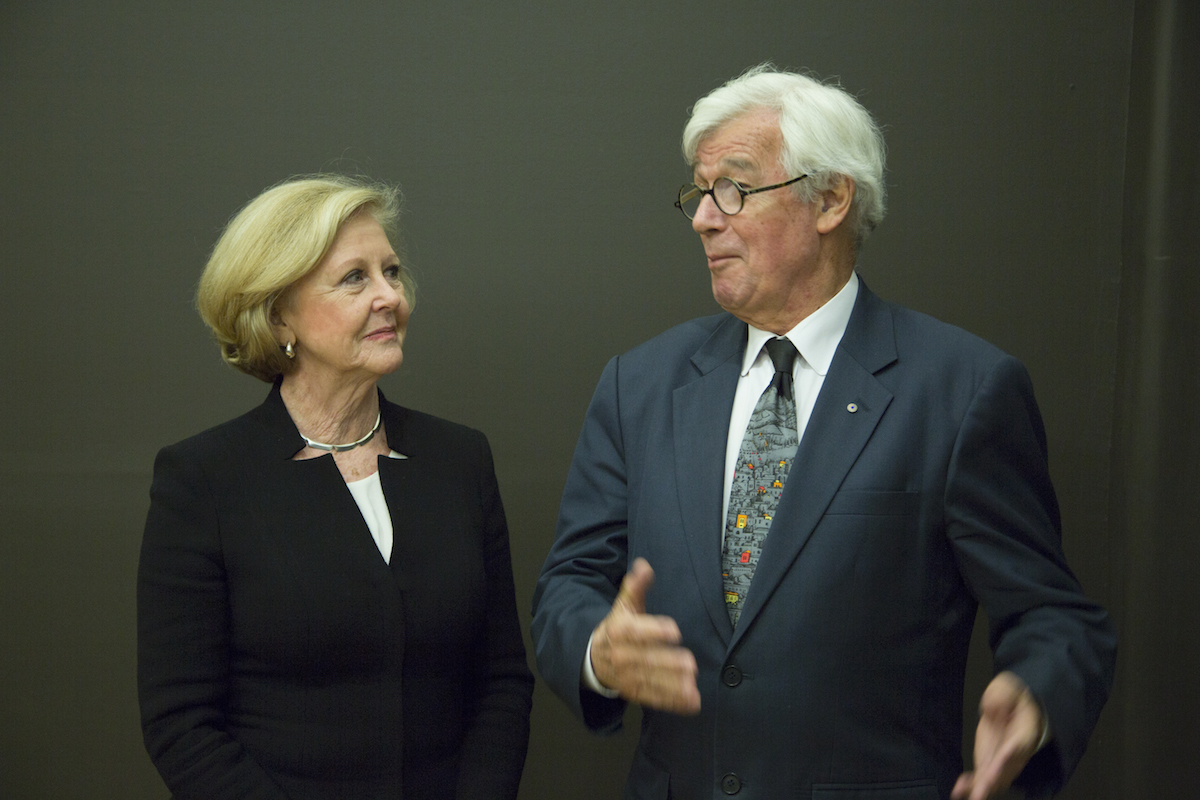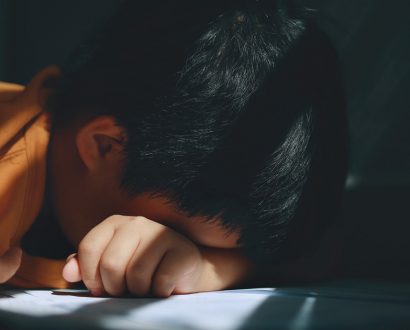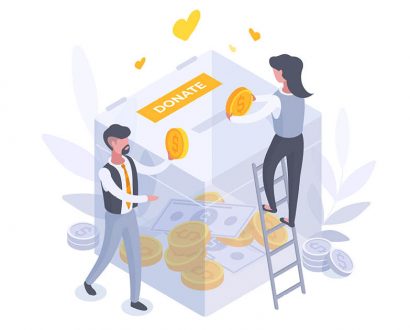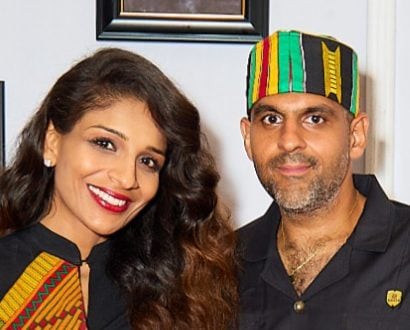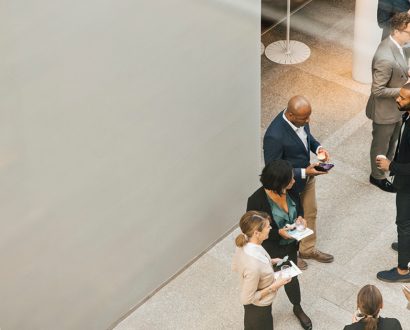In an eventful career, Gillian Triggs (pictured with Australian barrister Julian Burnside) practised international law at Malleson Stephen Jacques, then became a prominent barrister and, later, professor of law at Melbourne University.
Her most high-profile post, however, was her role as President of the Australian Human Rights Commission (AHRC), where she served from 2012 to 2017.
Despite intense scrutiny from the government of the day, she was widely admired as an eloquent and committed advocate for human rights. In 2018, she was named Australian Humanist of the Year.
She is now one of the ambassadors for the Human Rights Arts and Film Festival, which is in its eleventh year. The festival tours Australia from May to June.
Welcome to our next Festival Ambassador – @GillianTriggs!
Gillian was the President of the Australian Human Rights Commission in 2012-17, leading an Inquiry into the health impacts of indefinite mandatory immigration detention.#hraff2018 #StoriesThatMatter pic.twitter.com/Oqat1YgW2v— HRAFF (@humanrightsfest) March 30, 2018
How did you initially become involved in the Human Rights Arts and Film Festival (HRAFF)?
Initially, as President of the AHRC, I was asked to be involved and I gave a short speech about the importance of the arts and in particular the visual image in exposing human rights injustices.
That was a really interesting experience for me and I especially enjoyed meeting the people who were using the arts a vehicle, so I agreed to be an ambassador this year.
We hear a lot about fake news and the idea that we are now in a ‘post-truth’ world. Do you think documentaries have become increasingly important in this environment?
I think they have, but one needs to be a little cautious, because the photograph can be highly subjective. I’m not suggesting that the arts will always offer a crystal-clear mirror of objective truth. But I do think the arts are one of the most powerful means of portraying social injustice. It moves hearts as well as minds. It’s a vital tool, though one that always needs to be used truthfully and responsibly.
The arts are one of the most powerful means of portraying social injustice. It moves hearts as well as minds.
Can you tell us a little about Border Politics, the festival film you’re featured in?
I think it will be a really interesting attempt to get oral evidence as well as documentary images to tell the global story of the political lies, misinformation and distortion around the treatment of refugees. It is there for people to make up their own minds, but the evidence is pretty overwhelming of the inhumanity, breach of international law and the distortion of truth.
Are there any other films or events at HRAFF you are particularly looking forward to?
The one I would most like to see is the opening night film, After the Apology (which screens in Melbourne, 3 May). It deals with the apology (to Indigenous Australians) and the aftermath. The filmmakers are sending a very important message; simply to apologise is not enough. As they say: ‘Saying sorry means you don’t do it again’.
I think it will be a very powerful film that will expose the hypocrisy of the endless apologies at a political level where there is no follow through, and really, no sincerity.
As president of the AHRC, you were often seen as a fearless advocate for human rights. Do you think it is essential for leaders to have a courageous streak to stand up for their principles?
Well, thank you for that question. What I observed over those five years was an almost complete failure of political leadership on questions of social justice and human rights. Unfortunately, that was largely across the whole political spectrum. The major parties had pretty much agreed to some of the most cruel treatments of asylum seekers and refugees, but also in supporting the very high numbers of incarcerated Indigenous Australians. They also failed to do what they ought to have been doing in terms of supporting families in the context of violence.
The immediate answer is that I see leadership as critical. If you don’t have political support for fundamental issues of human rights, then it is extremely hard for civil society to have a strong impact. Having said that, all manifestations of civil society, including the arts and the media, have to speak up and assert their leadership when our political bodies are not able to take any leadership.
Who was someone who inspired you in your work?
I’ve always been greatly inspired by people who use the law to achieve social justice. I was a lawyer for 50 years and the law for me is critical. The rule of law doesn’t always get it right, but it is ultimately a powerful check against executive power.
I was impressed by people like Dr HV Evatt (former President of the United Nations General Assembly). He was a wonderful Australian who understood the principles of legality and human rights. He ensured these values became part of the Universal Declaration of Human Rights.
I also like to remember Jessie Street, who worked on the covenant of the League of Nations after the first world war. She pulled together the tiny number of women who were involved at that time to ensure womens’ rights were included in that covenant. Those two are inspiring leaders for me. I’m afraid in the current climate there aren’t too many inspiring leaders for this question!
I’m afraid in the current climate there aren’t too many inspiring leaders.
Did you see providing a role model for the next generation of lawyers as part of your role?
Not at all, actually. As a practising lawyer and an academic, I really had no media role. I don’t think I ever imagined I would find myself in that position. But once I became president (of the AHRC) and realised the media and government were going to attack the AHRC ideologically and attack me personally, it became clear that I had to really ensure that everything I did was accurate, fair, reasonable and based in the law. Then I took that responsibility as seriously as I could.
Gillian Triggs, named 2015 Woman of the Year, opens up about the ‘ham-fisted’ behaviour of Abbott government. https://t.co/w1l2HZvvY5
— The Sydney Morning Herald (@smh) December 7, 2015

